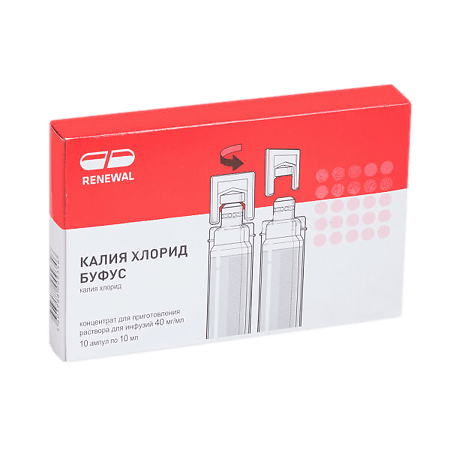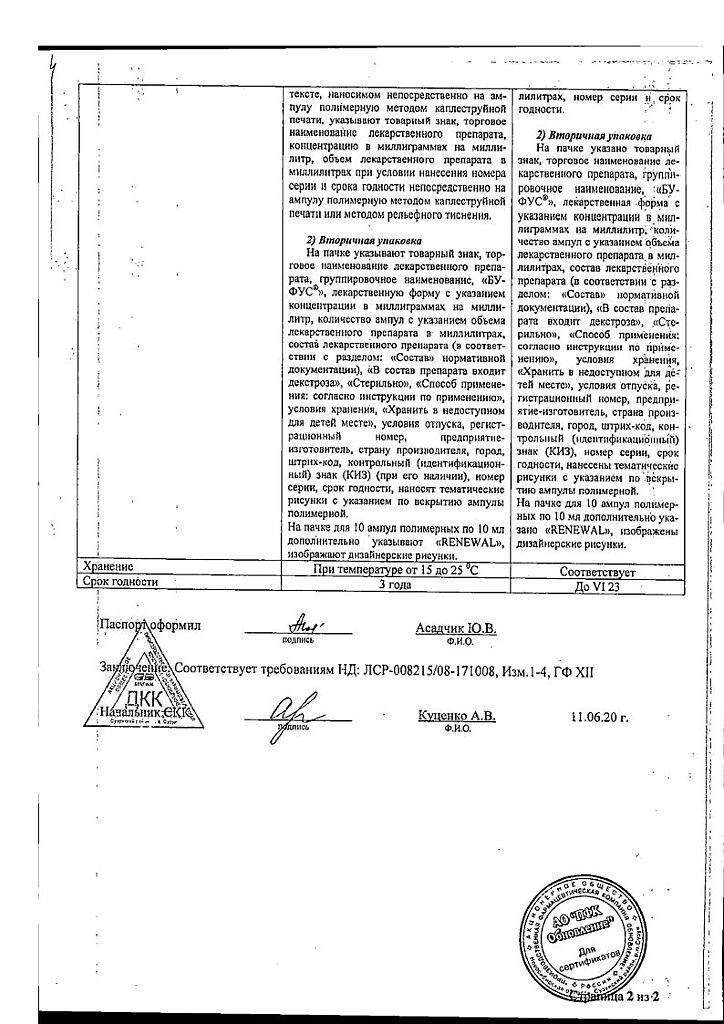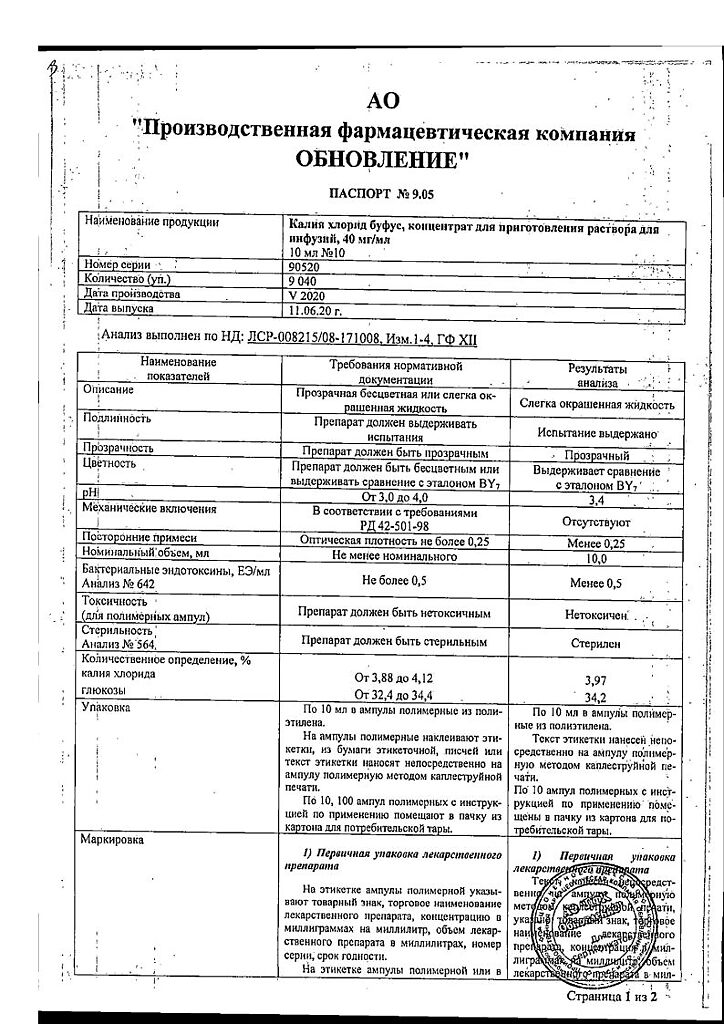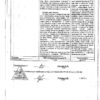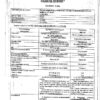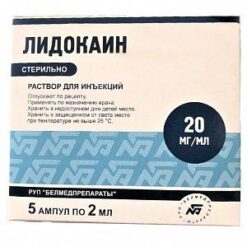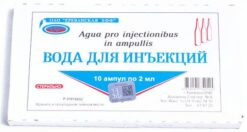No products in the cart.
Potassium Chloride Bufus, 40 mg/ml concentrate 10 ml 10 pcs
€4.45 €3.96
EAN: 4603988009346
SKU: 228123
Categories: Anesthesia and resuscitation, Anesthesia solutions, Medicine
Description
Potassium chloride is a remedy that replenishes potassium deficiency in the body.
Potassium chloride helps to maintain the necessary intra- and extracellular levels of potassium.
Potassium is the main intracellular ion and plays an important role in the regulation of various body functions.
Participates in maintaining intracellular osmotic pressure, in the processes of conduction and transmission of nerve impulse to innervated organs, in the contraction of skeletal muscles and in a number of biochemical processes.
Decreases myocardial excitability and conduction, in high doses it inhibits automatism.
Indications
Indications
Hypokalemia (including due to diabetes mellitus, prolonged diarrhea and/or vomiting, therapy with antihypertensive drugs, some diuretics, glucocorticosteroids),
treatment and prevention of digital intoxication,
prevention of arrhythmia in patients with myocardial infarction (in the acute period).
Pharmacological effect
Pharmacological effect
Potassium chloride is a remedy that replenishes potassium deficiency in the body.
Helps maintain the necessary intra- and extracellular potassium levels.
Potassium is the main intracellular ion and plays an important role in the regulation of various body functions.
Participates in maintaining intracellular osmotic pressure, in the processes of conducting and transmitting nerve impulses to innervated organs, in the contraction of skeletal muscles and in a number of biochemical processes.
Reduces the excitability and conductivity of the myocardium, in high doses it inhibits automatism.
Special instructions
Special instructions
During the treatment period, it is necessary to monitor the K+ content in the blood serum, ECG, and when treating hypokalemia, control the acid-base state.
The safety and effectiveness of potassium chloride in children have not been established.
If it is necessary to use during pregnancy, the expected benefit for the mother should be compared with the potential risk for the fetus.
During lactation, the issue of stopping breastfeeding should be decided.
A diet high in sodium chloride increases the excretion of K+ from the body. It should be borne in mind that hyperkalemia, leading to death, can develop quickly and be asymptomatic.
Active ingredient
Active ingredient
Potassium chloride
Composition
Composition
1 ml of solution for intravenous administration contains:
active ingredient:
potassium chloride – 40 mg
Contraindications
Contraindications
Hyperkalemia,
complete atrioventricular block,
adrenal insufficiency,
chronic renal failure,
concomitant therapy with potassium-sparing diuretics,
metabolic disorders (acidosis, hypovolemia with hyponatremia),
pregnancy,
lactation period,
age under 18 years (efficacy and safety have not been established).
Side Effects
Side Effects
From the nervous system: paresthesia, muscle weakness, confusion.
From the cardiovascular system: decreased blood pressure, arrhythmias, heart block, cardiac arrest.
Other: hyperkalemia, allergic reactions.
Interaction
Interaction
Pharmaceutically compatible with solutions of cardiac glycosides (improves their tolerability).
Strengthens the negative dromo- and bathmotropic effect of antiarrhythmic drugs.
As part of a polarizing mixture (in combination with dextrose and insulin), it helps to normalize heart rhythm during myocardial infarction, ectopic arrhythmias and overdose of cardiac glycosides.
Eliminates gynokalemia caused by glucocorticosteroids, mineralocorticosteroids and diuretics.
Beta-blockers, cyclosporine, potassium-sparing diuretics, heparin, angiotensin-converting enzyme inhibitors, and nonsteroidal anti-inflammatory drugs may increase the risk of hyperkalemia.
Overdose
Overdose
Symptoms: hyperkalemia (muscle hypotonicity, paresthesia of the extremities, slowing of atrioventricular conduction, arrhythmias, cardiac arrest).
Early clinical signs of hyperkalemia usually appear when serum K+ concentrations are more than 6 mEq/L; sharpening of the T wave, disappearance of the U wave, decrease in the ST segment, prolongation of the QT interval, expansion of the QRS complex. More severe symptoms of hyperkalemia – muscle paralysis and cardiac arrest – develop at a K+ concentration of 9-10 mEq/L.
Treatment: orally or intravenously – NaCl solution; intravenously – 300-500 ml of 5% dextrose solution (with 10-20 units of insulin per 1 liter); if necessary, hemodialysis and peritoneal dialysis.
Storage conditions
Storage conditions
In a dry place, protected from light, at a temperature from 0 to +30 ° C.
Shelf life
Shelf life
3 years. Do not use after expiration date.
Manufacturer
Manufacturer
Update of PFC JSC, Russia
Additional information
| Shelf life | 3 years. Do not use after the expiration date. |
|---|---|
| Conditions of storage | In a dry, light-protected place at a temperature of 0 to +30 ° C. |
| Manufacturer | Update PFC AO, Russia |
| Medication form | concentrate for preparation of infusion solution |
| Brand | Update PFC AO |
Related products
Buy Potassium Chloride Bufus, 40 mg/ml concentrate 10 ml 10 pcs with delivery to USA, UK, Europe and over 120 other countries.

